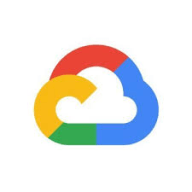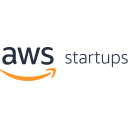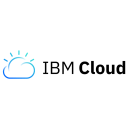Google Cloud vs Cloudflare: Which cloud solution fits your needs?
- 01Google Cloud (GCP) vs Cloudflare: overview
- 02What's the difference between Google Cloud (GCP) and Cloudflare?
- 03Google Cloud (GCP) pros and cons
- 04Cloudflare pros and cons
- 05Google Cloud (GCP) compared to Cloudflare
- 06Cloudflare compared to Google Cloud (GCP)
- 07Features comparison
- 08Google Cloud (GCP) vs Cloudflare: Which is the best for your business?
- 09Promotions on Cloud Computing software
- 10Alternatives to Google Cloud (GCP) & Cloudflare
Access up to $350,000 savings on Google Cloud (GCP) & $250,000 on Cloudflare
Access up to $350,000 savings on Google Cloud (GCP) & $250,000 on Cloudflare
Choosing the right cloud solution is crucial for optimizing your business's performance, security, and scalability. Whether you're managing a global network of applications or protecting your digital assets, the cloud platform you select plays a significant role in your overall success. With numerous cloud service providers available, finding the best fit for your needs can be a daunting task.
To help you navigate this decision, we've prepared an in-depth comparison of two industry-leading solutions—Google Cloud vs. Cloudflare. This guide explores their core features, contrasts their unique offerings, and highlights key differences to provide you with the insights needed to choose the best cloud platform for your business.
Google Cloud (GCP) vs Cloudflare: overview
Google Cloud and Cloudflare are two leading players in the cloud computing industry, each catering to distinct business needs and offering unique strengths.
Google Cloud is renowned for its comprehensive suite of cloud computing services, including infrastructure, data analytics, machine learning, and advanced networking solutions. It is particularly well-suited for businesses that require scalable computing power, sophisticated data management, and integration with other Google services. On the other hand, Cloudflare is celebrated for its expertise in web performance, security, and content delivery network (CDN) services. It is an excellent choice for businesses that prioritize enhancing website speed, ensuring robust cybersecurity, and optimizing global content delivery.
Now, let's dive into the Google Cloud vs. Cloudflare comparison to help you make an informed decision when selecting the right cloud service provider for your specific business needs.
What's the difference between Google Cloud (GCP) and Cloudflare?
While Google Cloud and Cloudflare are both leading cloud service providers, understanding their key differences is crucial for making an informed choice for your business. The primary distinction lies in their core focus and use cases.
Google Cloud is a comprehensive cloud computing platform that offers a wide range of services, including virtual machines, container orchestration, data analytics, AI and machine learning tools, and a global network infrastructure. It is designed to support complex, scalable applications and is particularly well-suited for businesses that require high-performance computing, large-scale data management, and seamless integration with other Google services like Google Workspace and BigQuery. Google Cloud is ideal for enterprises that need a robust, versatile cloud solution capable of handling diverse workloads across various industries.
In contrast, Cloudflare specializes in web performance, security, and content delivery network (CDN) services. While it also offers some edge computing and serverless functions, Cloudflare is primarily known for its ability to enhance website speed, provide powerful DDoS protection, and ensure secure, reliable content delivery across the globe. Cloudflare's platform is easy to use, with a strong emphasis on security features such as SSL/TLS encryption, web application firewalls (WAF), and zero-trust access control. It is an excellent choice for businesses focused on optimizing their online presence, protecting against cyber threats, and delivering content quickly and efficiently to users worldwide.
Another key difference is their pricing models. Google Cloud often operates on a pay-as-you-go model with flexible billing options, suitable for enterprises with varying resource demands. Cloudflare, on the other hand, offers a mix of free and paid plans, with a focus on flat-rate pricing for its security and CDN services, making it accessible to businesses of all sizes.
Google Cloud (GCP) pros and cons
What are the advantages of Google Cloud (GCP)?
- Scalability and performance: Google Cloud offers highly scalable infrastructure and services that can easily handle the demands of small startups to large enterprises. It provides powerful computing resources and global network capabilities that ensure consistent performance, even under heavy loads.
- Advanced data analytics and AI/ML tools: Google Cloud provides a suite of advanced tools for data analytics, machine learning, and artificial intelligence, including BigQuery, TensorFlow, and AutoML. These tools allow businesses to process large datasets, develop AI models, and gain insights from their data with ease.
- Global network infrastructure: Google Cloud operates one of the largest and most advanced networks in the world, with data centers located in multiple regions. This global presence ensures low latency, high availability, and reliable performance for users worldwide.
- Integration with Google services: Google Cloud seamlessly integrates with other popular Google services like Google Workspace, Google Maps, and YouTube. This integration is particularly beneficial for businesses that already use Google's ecosystem, enabling smooth workflows and enhanced productivity.
- Security and compliance: Google Cloud offers robust security features, including encryption, identity management, and comprehensive security controls. It also complies with various industry standards and regulations, making it suitable for businesses with stringent security and compliance requirements.
What are the disadvantages of Google Cloud (GCP)?
- Complex pricing structure: Google Cloud’s pricing can be complex and difficult to predict, especially for businesses with fluctuating workloads. While it offers flexibility, the wide range of services and pricing tiers can be confusing and may lead to unexpected costs if not carefully managed.
- Learning curve: For businesses new to cloud computing or those transitioning from other platforms, Google Cloud can present a steep learning curve. Its vast array of services and features requires time and expertise to fully understand and utilize effectively.
- Limited enterprise support: While Google Cloud offers various support plans, some users find that its customer support does not match the level of service provided by competitors like AWS or Microsoft Azure, especially for enterprise-level customers.
- Regional availability: Although Google Cloud has a global network, not all services are available in every region. This can be a limitation for businesses operating in certain geographic areas where specific Google Cloud services are not yet deployed.
- Competition in the ecosystem: Google Cloud faces strong competition from other cloud providers like AWS and Azure, which may have more mature ecosystems or specific services that better meet the needs of certain industries. This competition can make it harder for Google Cloud to stand out in particular market segments.
Compare Google Cloud (GCP) to other tools
Cloudflare pros and cons
What are the advantages of Cloudflare?
- Superior web performance: Cloudflare is known for its exceptional content delivery network (CDN) that significantly improves website load times by caching content closer to the user. This leads to faster page loading speeds and a better overall user experience, especially for global audiences.
- Robust security features: Cloudflare offers a comprehensive suite of security tools, including DDoS protection, web application firewalls (WAF), SSL/TLS encryption, and bot management. These features help protect websites and applications from a wide range of cyber threats, ensuring a secure online presence.
- Ease of use and deployment: Cloudflare’s platform is user-friendly and easy to set up, making it accessible even to those with limited technical expertise. It offers a simple integration process, often requiring just a few changes to DNS settings to get started.
- Global network presence: Cloudflare operates one of the largest networks globally, with data centers in over 100 countries. This extensive network ensures low latency, high availability, and reliable performance for users around the world.
- Flat-rate pricing: Cloudflare offers transparent, flat-rate pricing for many of its services, including security and CDN features. This pricing model makes it easy for businesses of all sizes to budget and plan their costs without worrying about unexpected charges.
What are the disadvantages of Cloudflare?
- Limited advanced features: While Cloudflare excels in performance and security, it may lack some advanced cloud computing features that are offered by other providers like Google Cloud or AWS. It is not designed for complex computing tasks, such as running large-scale applications or data analytics.
- Dependency on DNS: Cloudflare requires users to point their DNS to Cloudflare’s servers to utilize its services fully. This can be a downside for businesses that need more control over their DNS settings or prefer to keep their DNS management separate from their security and performance provider.
- Pricing for enterprise features: While Cloudflare’s basic and mid-tier plans are competitively priced, some advanced security features and enterprise-level services can be expensive. Businesses needing more sophisticated protection or custom solutions may find the costs challenging.
- Privacy concerns: As a service that handles a significant amount of global web traffic, Cloudflare has access to vast amounts of data. While Cloudflare maintains a strong commitment to privacy, some organizations may have concerns about entrusting so much data to a single provider.
- Limited support for non-web applications: Cloudflare’s strengths lie primarily in web performance and security. For non-web applications or those requiring specialized computing capabilities (like databases, complex machine learning tasks, or backend processing), Cloudflare may not be the ideal solution.
Compare Cloudflare to other tools
Google Cloud (GCP) compared to Cloudflare
Google Cloud and Cloudflare serve distinct purposes within the cloud ecosystem. Google Cloud is a comprehensive platform offering a wide range of services, including computing, data analytics, machine learning, and scalable infrastructure, making it ideal for businesses requiring robust, enterprise-grade solutions.
In contrast, Cloudflare excels in web performance optimization, security, and content delivery, providing services like DDoS protection, CDN, and web application firewalls. While Google Cloud is best for complex, large-scale applications, Cloudflare is the go-to for enhancing website speed, security, and reliability, catering primarily to web-focused use cases.
Is Google Cloud (GCP) better than Cloudflare?
Determining whether Google Cloud is better than Cloudflare depends on your specific needs and objectives. Google Cloud is superior for businesses needing a comprehensive cloud computing platform with extensive services for data processing, application development, and large-scale infrastructure management. It excels in handling complex, resource-intensive workloads.
On the other hand, Cloudflare is better suited for organizations focused on optimizing web performance and security. It provides specialized tools for speeding up websites, protecting against cyber threats, and ensuring reliable content delivery.
What is Google Cloud (GCP) best used for?
Google Cloud is best used for delivering scalable, enterprise-level solutions across various industries. It excels in providing robust infrastructure for large-scale computing, data analytics, and machine learning. Businesses leverage Google Cloud for its powerful tools like BigQuery for data warehousing, TensorFlow for AI and machine learning, and Kubernetes Engine for containerized applications.
Additionally, its global network infrastructure supports high availability and low latency, making it ideal for mission-critical applications. Google Cloud is particularly well-suited for organizations that require advanced data processing, seamless integration with other Google services, and the ability to handle complex, resource-intensive workloads.
Can Google Cloud (GCP) replace Cloudflare?
Google Cloud cannot fully replace Cloudflare, as the two platforms serve different primary functions. Google Cloud is a comprehensive cloud computing platform designed for large-scale infrastructure, data analytics, and application development. It provides powerful tools for managing complex workloads and deploying enterprise applications.
On the other hand, Cloudflare specializes in enhancing web performance, security, and content delivery through its CDN, DDoS protection, and web application firewalls. While Google Cloud offers some overlapping services, it doesn't provide the same level of dedicated web optimization and security features that Cloudflare does, making the two platforms complementary rather than interchangeable.
Is Google Cloud (GCP) cheaper than Cloudflare?
Whether Google Cloud is cheaper than Cloudflare depends on the specific services and use cases involved. Google Cloud typically operates on a pay-as-you-go model with pricing based on computing power, storage, and data transfer, which can become expensive for large-scale or resource-intensive applications.
Cloudflare, however, offers flat-rate pricing for its core services like CDN, DDoS protection, and security features, often making it more cost-effective for businesses focused on optimizing and securing web traffic. While Google Cloud’s pricing may be more economical for certain cloud computing needs, Cloudflare generally provides more predictable and potentially lower costs for web performance and security.
Is there a better Cloud Computing software than Google Cloud (GCP)?
Determining if there's a better software than Google Cloud depends on your specific cloud computing needs and business objectives. Several alternatives cater to different requirements and offer unique strengths.
Alternatives to Google Cloud include Amazon Web Services (AWS), Microsoft Azure, IBM Cloud, and Oracle Cloud. For example, AWS is known for its extensive service offerings and maturity in the market, while Microsoft Azure excels in hybrid cloud solutions and integration with Microsoft products. The choice of the best platform depends on factors such as your organization's infrastructure needs, preferred development tools, and budget.
$2,000 in credits for 1 year if you never raised funds // $350,000 in credits for 2 years if you did on Google Cloud (GCP)
Get $2,000 in credits for 1 year if you never raised funds // $350,000 in credits for 2 years if you did on Google Cloud (GCP) and up to $350,000 savings with Secret.
Cloudflare compared to Google Cloud (GCP)
Cloudflare and Google Cloud serve distinct roles in the cloud ecosystem. Cloudflare specializes in enhancing web performance, security, and content delivery, making it ideal for businesses focused on optimizing website speed, providing DDoS protection, and securing online assets.
In contrast, Google Cloud offers a comprehensive suite of cloud computing services, including data analytics, machine learning, and scalable infrastructure, suitable for complex enterprise applications. While Cloudflare excels in delivering fast and secure web experiences, Google Cloud is better suited for handling large-scale computing tasks and sophisticated data-driven applications, making them complementary rather than directly comparable platforms.
Is Cloudflare better than Google Cloud (GCP)?
Whether Cloudflare is better than Google Cloud depends on your specific requirements. Cloudflare excels in providing top-tier web performance optimization and security, making it the preferred choice for businesses that prioritize fast, reliable website experiences and robust protection against online threats. Its strengths lie in delivering content quickly and securely, particularly for web-focused operations.
However, if your needs extend beyond web performance and require comprehensive cloud computing capabilities, data analytics, or advanced machine learning tools, Google Cloud would be the superior choice. Cloudflare is better for specialized web solutions, while Google Cloud is more suited for broader, enterprise-grade cloud computing needs.
What is Cloudflare best used for?
Cloudflare is best used for enhancing website performance, security, and reliability. It excels as a content delivery network (CDN), distributing content globally to reduce load times and improve user experience.
Additionally, Cloudflare provides robust security features, including DDoS protection, web application firewalls (WAF), and SSL/TLS encryption, making it an ideal solution for safeguarding websites against cyber threats. Its services are particularly valuable for businesses that need to ensure fast, secure, and uninterrupted access to their online assets. Cloudflare is most effective for optimizing web traffic, protecting against attacks, and maintaining high availability for users worldwide.
Can Cloudflare replace Google Cloud (GCP)?
Cloudflare cannot fully replace Google Cloud, as the two platforms serve different core purposes. Cloudflare is primarily focused on web performance, security, and content delivery, providing services like CDN, DDoS protection, and web application firewalls that optimize and protect websites. Google Cloud, on the other hand, offers a comprehensive range of cloud computing services, including infrastructure, data analytics, and machine learning, designed for building and running complex applications.
While Cloudflare can complement Google Cloud by enhancing the performance and security of web applications, it does not offer the broad computing and storage capabilities necessary to replace Google Cloud's functionalities.
Is Cloudflare cheaper than Google Cloud (GCP)?
Cloudflare is generally cheaper than Google Cloud for specific services like content delivery, web performance optimization, and basic security features. Cloudflare’s pricing is often flat-rate and predictable, making it cost-effective for businesses focused on improving website speed and security.
In contrast, Google Cloud’s pricing is more complex and varies based on usage for computing power, storage, and other advanced services. While Google Cloud offers a broader range of services that can become expensive, especially for large-scale operations, Cloudflare typically provides a more affordable solution for businesses primarily seeking to optimize and secure their online presence.
Is there a better Security software than Cloudflare?
Determining whether there's a better software than Cloudflare depends on your specific web performance and security needs. Various alternatives cater to different requirements.
Alternatives to Cloudflare include AWS CloudFront, Akamai, Fastly, and Imperva, each with unique strengths. For example, AWS CloudFront is integrated with Amazon’s broader cloud ecosystem and excels in scalability, while Akamai is renowned for its extensive global network and robust security features. The choice of the best platform depends on your specific needs, budget, and desired features.
$250,000 in credits for 1 year on Cloudflare
Get $250,000 in credits for 1 year on Cloudflare and up to $250,000 savings with Secret.
Features comparison
Google Cloud Surpasses Cloudflare in Big Data and Analytics Capabilities
Google Cloud offers a comprehensive suite of big data and analytics tools, including BigQuery, Dataflow, and Dataprep, that provide unmatched capabilities for data-driven businesses. BigQuery enables expansive data warehousing with the ability to run complex queries on large datasets in seconds, while Dataflow supports scalable batch and stream data processing, making it ideal for real-time analytics. Dataprep simplifies data cleaning and preparation, allowing users to prepare data visually without needing extensive coding skills.
In contrast, Cloudflare focuses on real-time insights into web traffic and application performance but lacks the depth and versatility of Google Cloud's big data tools. Google Cloud's offerings enable businesses to perform comprehensive analyses, uncover deep insights, and drive informed decision-making at scale, making it the superior choice for organizations with significant data processing and analytics needs.
Cloudflare Excels Over Google Cloud in Load Balancing and Traffic Management
While Google Cloud’s Compute Engine enables the creation and customization of virtual machines (VMs) to run a variety of applications, websites, and services, making it a reliable and scalable platform, Cloudflare surpasses it in load balancing and traffic management. Cloudflare's advanced load balancing automatically distributes incoming traffic across multiple servers or data centers, ensuring high availability and optimal performance even during peak usage or unexpected traffic spikes.
For example, Cloudflare's global Anycast network routes users to the nearest and healthiest server, minimizing latency and reducing the risk of server overload. This seamless traffic management not only enhances user experience but also improves the reliability of web services, giving Cloudflare a significant edge in scenarios where performance and availability are critical.
Both Google Cloud and Cloudflare Offer Superb Serverless Computing Capabilities
Both Google Cloud and Cloudflare excel in the realm of serverless computing, offering robust platforms for developers to build and deploy applications without the burden of managing infrastructure. Google Cloud's Cloud Functions and Cloud Run enable developers to create highly scalable applications that automatically adjust to traffic demands, making them ideal for dynamic workloads. For instance, Cloud Functions allow event-driven development, where code is triggered by specific events, while Cloud Run supports containerized applications, offering flexibility and efficiency.
Similarly, Cloudflare’s Workers platform allows developers to deploy serverless code globally, ensuring low-latency performance by running scripts directly at the edge of the network. This capability is particularly useful for enhancing web applications' responsiveness and reliability. Both platforms provide exceptional serverless computing solutions, making them invaluable for businesses seeking to streamline operations and enhance application performance.
Cloudflare Excels Over Google Cloud in Ease-of-Use
When it comes to ease-of-use, Cloudflare clearly shines over Google Cloud, particularly for users focused on web performance and security. Cloudflare's interface is intuitive and user-friendly, designed to simplify the process of setting up and managing services like CDN, DDoS protection, and SSL/TLS encryption. Even those with limited technical expertise can quickly configure and deploy Cloudflare’s features with minimal hassle.
In contrast, Google Cloud, while powerful, has a steeper learning curve due to its broad range of complex services, such as compute instances, data storage, and machine learning tools, which often require more advanced knowledge to manage effectively.
Google Cloud Edges Out Cloudflare in Integration Capabilities
When it comes to integration possibilities, both Google Cloud and Cloudflare offer distinct advantages, but Google Cloud has the edge due to its extensive suite of services within the Google ecosystem. Google Cloud allows seamless integration with widely-used applications such as Google Analytics, Gmail, Google Docs, and Google Drive, making it an ideal choice for businesses that rely on these tools.
For example, integrating Google Cloud with Google BigQuery enables powerful data analysis directly from your existing Google Sheets. This interconnected nature of Google’s services streamlines workflows, reduces the need to switch between different platforms, and ultimately enhances productivity across various software categories, from communication and collaboration software to data management and analytics.
Google Cloud Outpaces Cloudflare in Storage Infrastructure Offerings
While both Google Cloud and Cloudflare offer storage infrastructures for businesses, Google Cloud significantly outpaces Cloudflare by providing a broader and more versatile range of options. Google Cloud offers robust storage solutions like Cloud Storage, Cloud SQL, and Cloud Bigtable, each designed to cater to different data needs. For instance, Cloud Storage is ideal for storing vast amounts of unstructured data, while Cloud SQL offers managed relational databases perfect for transactional applications. These services are highly scalable, ensuring they can handle everything from small projects to massive, data-driven enterprises with ease.
In contrast, Cloudflare primarily focuses on network infrastructure and performance, offering limited storage capabilities compared to Google Cloud's extensive options.
Cloudflare Edges Out Google Cloud in Specialized Security Features
Both Google Cloud and Cloudflare provide robust security features essential for protecting digital assets. Google Cloud offers a comprehensive security suite, including Identity and Access Management (IAM), encryption at rest and in transit, and DDoS protection. However, Cloudflare excels in specialized security measures, particularly in DDoS protection and Web Application Firewall (WAF) capabilities. Cloudflare’s advanced DDoS mitigation is highly adaptive, automatically scaling to handle evolving threats and maintaining service availability even during large-scale attacks.
For example, Cloudflare can manage sudden traffic spikes from malicious actors without compromising performance, offering more granular WAF rules that allow for precise threat detection and prevention tailored to specific web applications. This makes Cloudflare particularly strong in safeguarding websites and online services against complex security threats.
Subscribe to our newsletters.
No FOMO here. Stay up-to-date on all the latest deals and news with our monthly newsletter straight to your inbox like 126,000+ entrepreneurs (+ Get 10% off on on our Premium Membership!)
Google Cloud (GCP) vs Cloudflare: Which is the best for your business?
Google Cloud (GCP) is the best tool for you if:
- You need a scalable cloud platform with comprehensive services for data analytics, machine learning, and AI, allowing you to process large datasets and build advanced models with ease.
- Your business relies heavily on the Google ecosystem, and you require seamless integration with tools like Google Workspace, BigQuery, and Google Kubernetes Engine for efficient workflow and collaboration.
- You’re looking for robust infrastructure capable of running complex, resource-intensive applications across a global network, ensuring high availability and low latency for mission-critical operations.
- Your projects demand advanced security and compliance features, including encryption, identity management, and adherence to industry standards, to protect sensitive data and meet regulatory requirements.
- You need a flexible, pay-as-you-go pricing model that allows you to scale resources up or down based on demand, optimizing costs without sacrificing performance or reliability.
Cloudflare is the best tool for you if:
- You need to optimize website performance globally, ensuring fast load times and reduced latency through a powerful content delivery network (CDN) that caches content close to your users.
- Your primary concern is securing your online assets against cyber threats, and you require advanced DDoS protection, Web Application Firewall (WAF), and SSL/TLS encryption to safeguard your website.
- You want to manage and distribute web traffic efficiently, with intelligent load balancing and traffic management features that automatically route users to the nearest and most responsive server.
- Your business requires real-time insights into web traffic and application performance, allowing you to monitor, analyze, and respond to issues as they arise without significant delays.
- You seek an easy-to-use, scalable solution that provides robust web security and performance enhancement without the need for extensive technical expertise or complex infrastructure management.
Alternatives to Google Cloud (GCP) & Cloudflare
Promotions on Cloud Computing software
Start saving on the best SaaS with Secret.
Secret has already helped tens of thousands of startups save millions on the best SaaS like Google Cloud (GCP), Cloudflare & many more. Join Secret now to buy software the smart way.





















